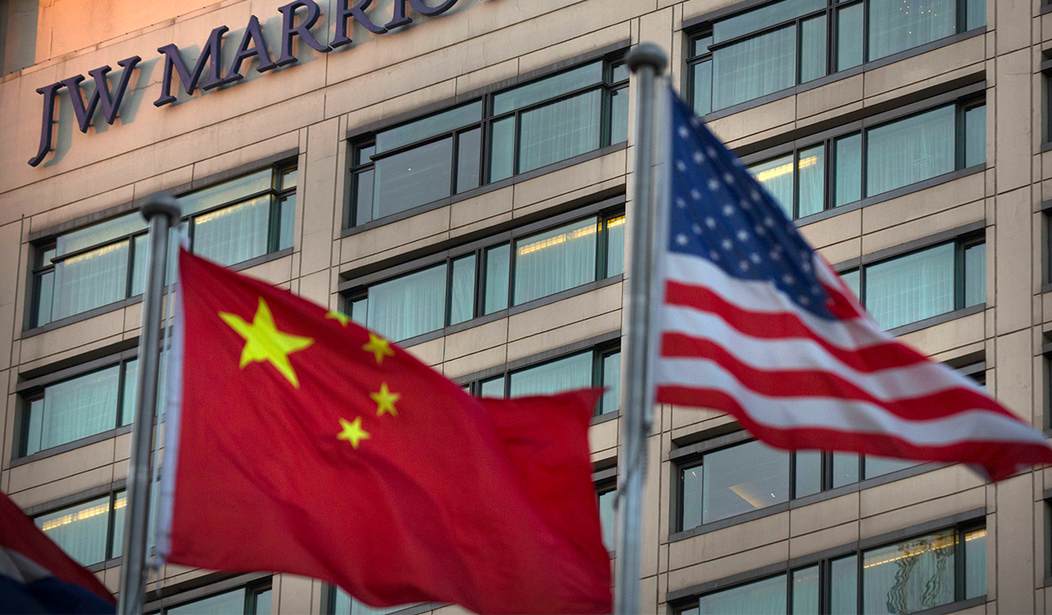There is a certain irony to a group of rich countries pushing for policies that will disadvantage poorer countries. Yet this is exactly what the leaders of the world's biggest economies did by endorsing a global minimum tax rate of 15% on the profits of large businesses, a deal that has since gained momentum and pledges from leaders in 136 countries.
The deal's objectives are simple. It creates a tax cartel, and high-tax nations believe this will limit competition from countries with lower and simpler taxes. It also benefits wealthier, higher-tax nations by shifting revenues from countries where companies are headquartered to countries where companies make their sales. At the heart of these two objectives is the need to feed wealthy nations' enormous budgets.
Here's the skinny on a global minimum tax: Most countries, including the United States since the passage of 2017's Tax Cuts and Jobs Act, use some version of a "territorial" system. Territoriality is a basic principle of good tax policy and means that governments don't tax their taxpayers' foreign-earned incomes. That money is instead taxed by the foreign jurisdictions where it is earned. Firms can choose where to do business based on what country has the best tax regime. This approach puts pressure on governments with punishing tax regimes to become less draconian.
High-tax nations don't like this competition, which is why they've been itching for the past decade to undermine it with a global minimum tax. And while the U.S. government is set to benefit immensely from the new regime, U.S. companies with foreign subsidiaries and income will not.
The interesting thing is that some advocates don't bother to hide the fact that their goal is to simply extract more revenue from businesses. In a recent Washington Post piece, economist and former Treasury Secretary Lawrence Summers cheered the new deal:
Recommended
"Countries have come together to make sure that the global economy can create widely shared prosperity, rather than lower tax burdens for those at the top. By providing a more durable and robust revenue base, the new minimum tax will help pay for the sorts of public investments that are fundamental to economic success in all countries."
Summers seems to believe that higher tax rates inevitably lead to more tax revenue, and that politicians will always use the money in ways that are sure to promote growth. It's putting a lot of faith in the notion that politicians will finance worthy investments, as opposed to introducing all sorts of economic distortions or buying votes by feeding corporate welfare. A look at the "Build Back Better" legislation making its way through Congress, which is loaded with counterproductive tax credits and other policies, shows that this faith is unwarranted.
What's more, scholarly work by the Tax Foundation, the International Monetary Fund, the Organisation for Economic Co-operation and Development and others show that an increase in the corporate tax rate is one of the least effective ways to raise revenue, and that it will lower gross domestic product. That's partly because it lowers investments and, in turn, reduces workers' wages and increases consumer prices.
Corporations may not be popular, but if we squeeze them too hard, how many raises can we expect them to hand out to American workers? What happens to the prices we pay for their products? Even corporations need accountable government, and that means having options in case taxes become too punishing.
The irony, of course, is that while the United States and its richest friends are set to benefit at the expense of poorer countries, the deal is being sold in the name of fighting inequality at home. Or, as Summers puts it, to avoid "lower tax burdens for those at the top."
Wealthy nations could address their budget woes by cutting spending, something most politicians don't have the stomach for. In addition, if these countries have a problem with how multinational corporations are taxed, they could change other policies like transfer-pricing rules. What they shouldn't do is tell other countries how income should be taxed within their own borders, let alone set up a global tax cartel.
The average taxpayer may feel unconcerned by this development. But beware: This cartel is just the beginning. Once such a system is in place, it's only a matter of time before revenue-hungry legislators extend the minimum tax rate to individuals.

























Join the conversation as a VIP Member